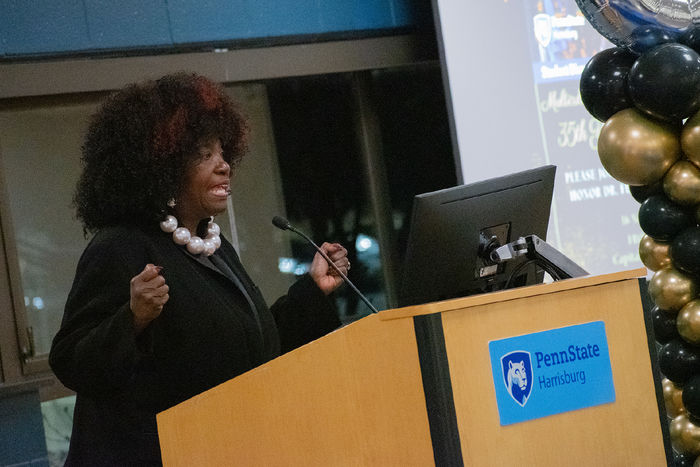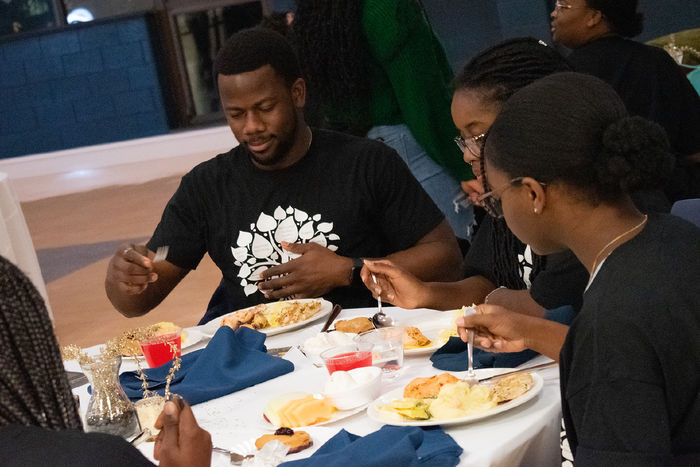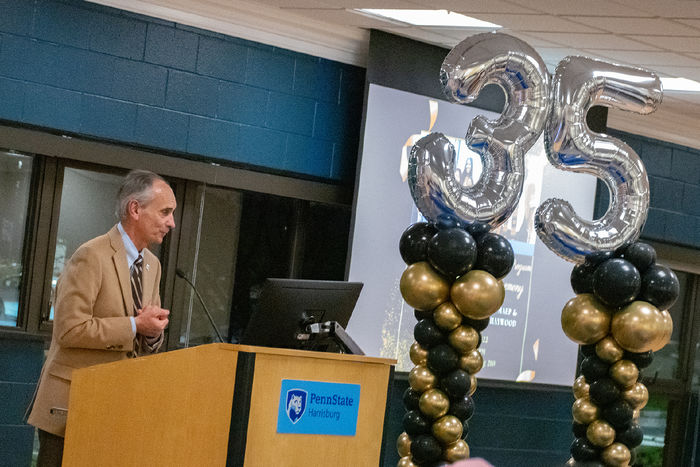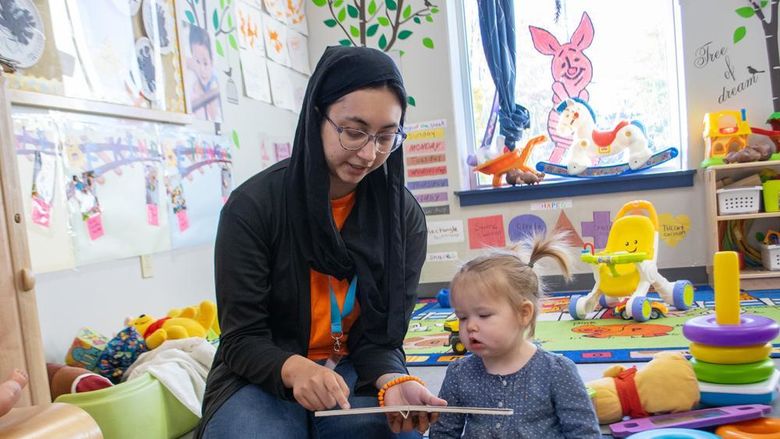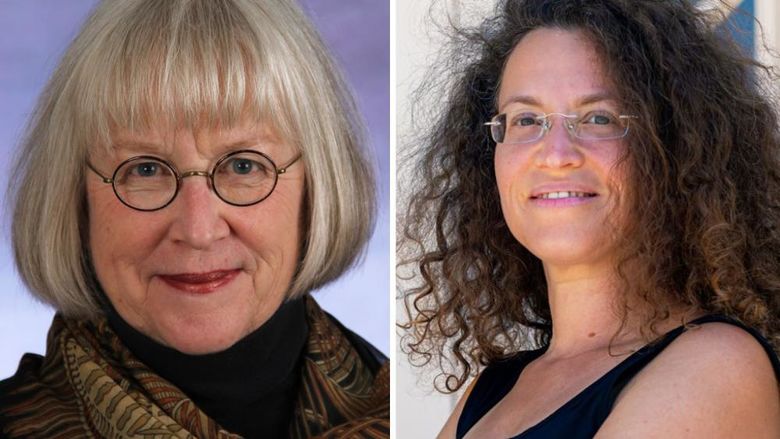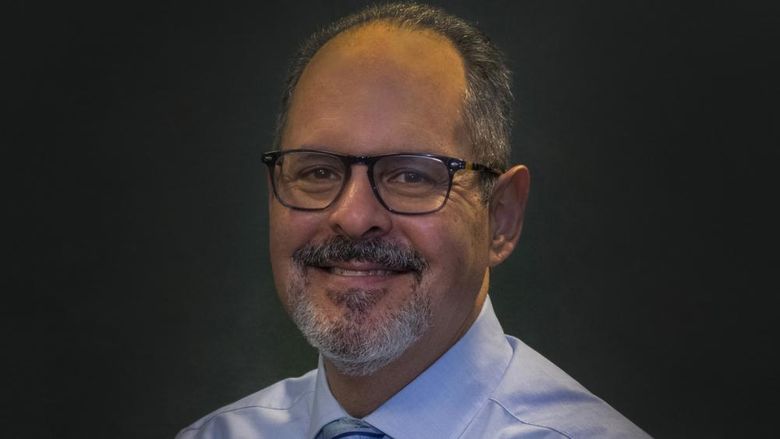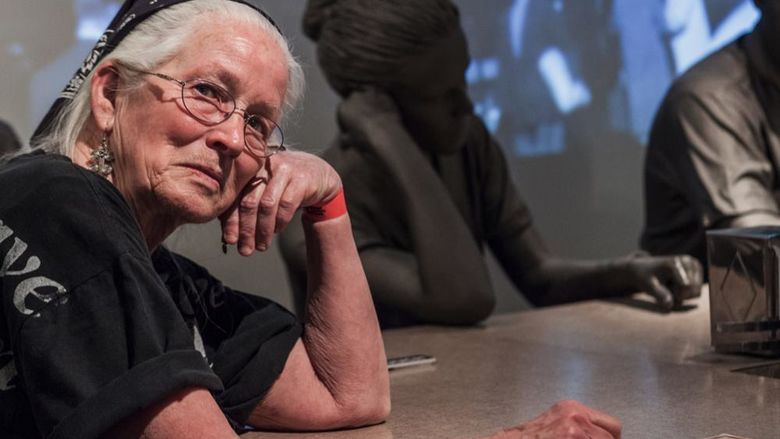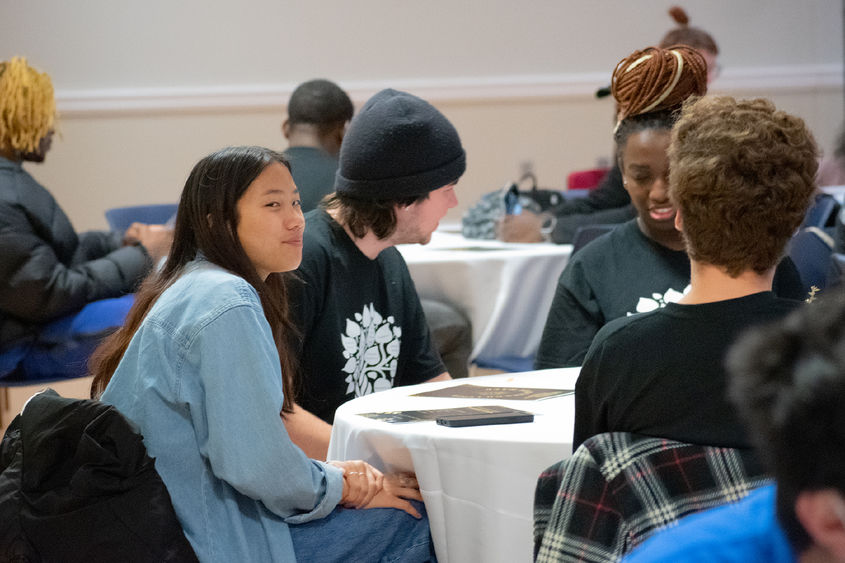
Students, faculty and staff gathered to celebrate the anniversary of the Multicultural Academic Excellence Program. The program is built on four pillars: academics, culture and society, professionalism, and health and wellness.
MIDDLETOWN, Pa. — Every Wednesday afternoon, students fill the Gallery Lounge in Penn State Harrisburg’s Olmsted Building. Here, during meetings of the Multicultural Academic Excellence Program, they share a meal, learn about campus resources or career topics, and are free to talk about whatever is on their minds.
Second-year student Sabine Kabuika, who regularly attends, said she feels like students can talk about whatever they need to — even uncomfortable topics — during the sessions.
“It’s a friendly, almost family-[oriented] environment,” she said.
For more than three decades, Penn State Harrisburg’s Multicultural Academic Excellence Program, better known as MAEP, has served as a place for students to expand their horizons, meet new people, learn about academic or professional topics, and simply be themselves without judgment.
MAEP was founded by Felicia Brown-Haywood, who retired from Penn State Harrisburg in 2019 as director of the Office of Student Affairs and Engagement. She said the program was originally established as a retention and cross-cultural initiative for first-generation students and students belonging to various cultural identity groups such as Black, Latino, Native American, and Asian American.
“As the years continued, MAEP morphed to meet the changing needs of the students while still, through the lens of academic success, meeting students at their point of need and fostering a climate of belonging,” said Brown-Haywood, who is now vice president of diversity, equity, and inclusive excellence at Lebanon Valley College.
MAEP is built on four pillars: academics, culture and society, professionalism, and health and wellness, said Evan Williams, assistant director for student diversity, equity and inclusion at Penn State Harrisburg. Weekly meetings typically have a focus, such as a staff member sharing information about a resource on campus or a guest offering tips on everything from wellness to career paths.
This year, topics at MAEP sessions have included study abroad, services available from the Russell E. Horn Sr. Learning Center and the Madlyn L. Hanes Library, and a visit from motivational speaker and Penn State Harrisburg alumnus Bryan Majors, who talked about “the power of preparation.”
One recent Wednesday night, Williams informed the group that the next session would have an informal “let’s talk” theme.
“I know life is hard, school is hard,” he told them. “Just come vent. Talk about anything.”
Kendra Gibson, a 2013 Penn State Harrisburg graduate and MAEP participant, recalls the program serving as a safe place for students, especially students of color, to think critically and explore subjects relevant to their studies, such as time management and learning styles.
Gibson, who now works in Washington D.C. for Giant Food’s e-commerce marketing department, credited the longevity of MAEP to the sense of belonging it fosters.
MAEP brought students new ideas and experiences and allowed people to learn from one another, she said.
Kabuika and Ife Amao, another second-year student, were introduced to MAEP last year by a friend and they’ve met more friends through their participation.
“A lot of my close friends have come from MAEP,” Amao said.
Amao enjoys the environment of the program — it’s informal and relaxed. But she’s also learned a lot about campus resources that she might otherwise not have known, she said.
Williams said it’s also a good place for students to see faculty and staff outside of the classroom setting.
“[Students] like to see staff participate in the conversation, so I think that is a great thing to recognize as well,” he said.
When he pitched MAEP to incoming freshman during New Student Orientation sessions over the summer, he told them coming to college is about challenging themselves and getting out of their comfort zones.
“MAEP is a great space for that because you’re in a space with all types of students from all walks of life,” he said.
Fifth-year student Max Kelly said his biggest regret is that he only discovered MAEP this year.
He learned about the program after meeting Williams through the LGBTQ club on campus. Kelly had initially worried that, as a white male, he might be intruding in a space that he shouldn’t, but Williams encouraged him to join.
At MAEP, Williams and Nicholas Paesano, equity compliance specialist/sexual misconduct resource person at Penn State Harrisburg, “lovingly force you to sit with new people,” Kelly said, and as a result he’s met and learned a lot about students from many different backgrounds. He credits Williams and Paesano for making it a welcoming space for everyone.
“The epitome of inclusion,” Kelly said.
